
Uoleva Island: A Hidden Gem in Tonga
Uoleva Island, nestled in the heart of Tonga's Ha'apai archipelago, is the epitome of untouched paradise. This tiny island, renowned for its pristine white sand beaches and crystal-clear waters, offers a tranquil escape from the hustle and bustle of modern life. Visitors can bask in the serenity of the island, with the gentle sound of waves and the rustle of palm trees as their only companions. The island is perfect for those who love to explore nature. Snorkeling and diving enthusiasts will find the surrounding coral reefs teeming with vibrant marine life. Uoleva’s calm waters make it an ideal spot for kayaking and paddleboarding. For those who prefer land-based activities, the island offers scenic walking trails where one can discover exotic flora and fauna. Accommodation on Uoleva Island is uniquely charming, with eco-friendly lodges and beach bungalows that blend seamlessly into the natural environment. The local hospitality is warm and welcoming, ensuring that each visitor feels at home. Traditional Tongan feasts, known as 'umu', are a culinary highlight, allowing tourists to savor authentic local flavors while enjoying traditional dance and music performances.
Local tips in Uoleva Island
- Pack essentials like sunscreen, insect repellent, and a reusable water bottle, as shops are limited on the island.
- Accommodation can be sparse, so book your stay well in advance, especially during peak seasons.
- Respect the local customs and traditions, which are an integral part of the Tongan way of life.
- Bring cash, as there are no ATMs on the island, and credit card facilities may be limited.
- Don't miss the chance to join in a traditional 'umu' feast for an authentic Tongan culinary experience.
Uoleva Island: A Hidden Gem in Tonga
Uoleva Island, nestled in the heart of Tonga's Ha'apai archipelago, is the epitome of untouched paradise. This tiny island, renowned for its pristine white sand beaches and crystal-clear waters, offers a tranquil escape from the hustle and bustle of modern life. Visitors can bask in the serenity of the island, with the gentle sound of waves and the rustle of palm trees as their only companions. The island is perfect for those who love to explore nature. Snorkeling and diving enthusiasts will find the surrounding coral reefs teeming with vibrant marine life. Uoleva’s calm waters make it an ideal spot for kayaking and paddleboarding. For those who prefer land-based activities, the island offers scenic walking trails where one can discover exotic flora and fauna. Accommodation on Uoleva Island is uniquely charming, with eco-friendly lodges and beach bungalows that blend seamlessly into the natural environment. The local hospitality is warm and welcoming, ensuring that each visitor feels at home. Traditional Tongan feasts, known as 'umu', are a culinary highlight, allowing tourists to savor authentic local flavors while enjoying traditional dance and music performances.
When is the best time to go to Uoleva Island?
Iconic landmarks you can’t miss
Mapu'a Vaea Blowholes
Explore the majestic Mapu'a Vaea Blowholes in Tonga, where nature's power meets breathtaking coastal beauty, creating unforgettable memories.
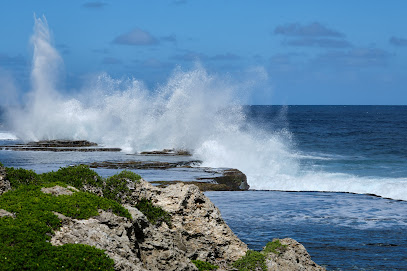
Royal Palace of Tonga
Explore the Royal Palace of Tonga, a historic site rich in cultural heritage, showcasing the beauty of Tongan architecture and royal traditions.
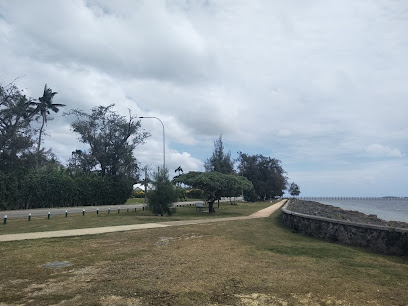
Anahulu Cave
Unveil the natural beauty and rich history of Anahulu Cave, a stunning destination in the heart of Tonga, perfect for adventure and exploration.
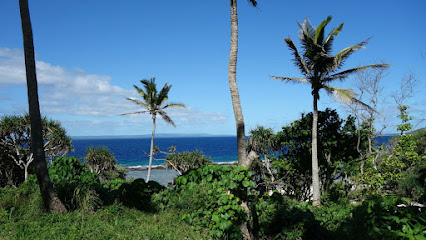
Royal Tombs
Discover the Royal Tombs of Tonga, a captivating historical landmark that embodies the rich heritage and royal history of this beautiful island nation.
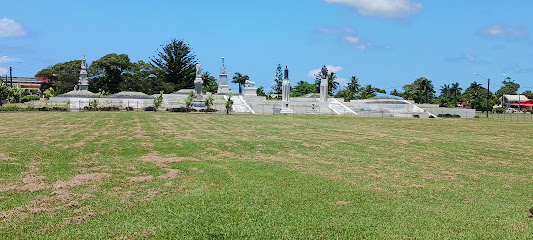
Ancient Tonga
Explore Ancient Tonga: A cultural gem in Nuku'alofa showcasing Tongan heritage through captivating historical sites and breathtaking landscapes.
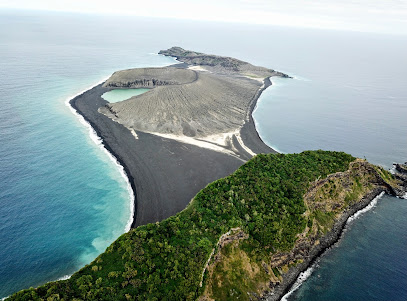
'Oholei Beach Resort
Discover the serene beauty and authentic Tongan hospitality at 'Oholei Beach Resort, where relaxation meets adventure in an island paradise.
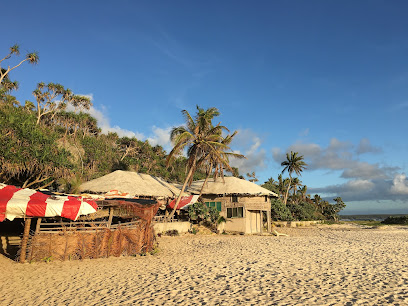
Ha'amonga 'a Maui Trilithon
Discover the ancient wonder of Ha'amonga 'a Maui Trilithon in Tonga, a stunning historical landmark that showcases Polynesian engineering and rich cultural heritage.
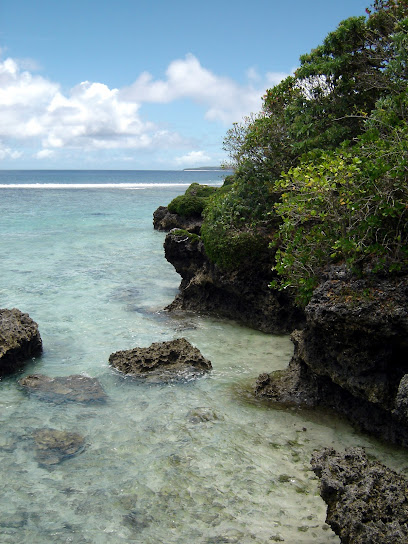
3 Headed Coconut
Explore the captivating 3 Headed Coconut in Matahau, Tonga, where culture and nature intertwine for a unique tourist experience.
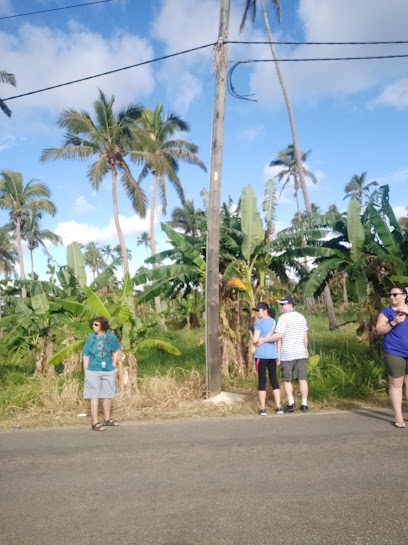
Vakaloa Beach Resort
Discover the tranquil beauty of Vakaloa Beach Resort in Kanokupolu, your ultimate Tongan retreat for relaxation and adventure.
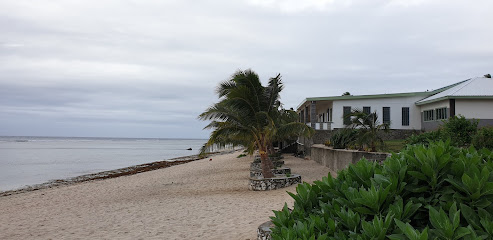
House of Tonga
Experience the authentic charm of Tonga at the House of Tonga, your perfect base for exploring Nuku'alofa's rich culture and beautiful landscapes.

Captain Cook Landing Site
Explore the Captain Cook Landing Site in Tonga, a historical landmark that offers insight into maritime exploration amidst breathtaking natural beauty.
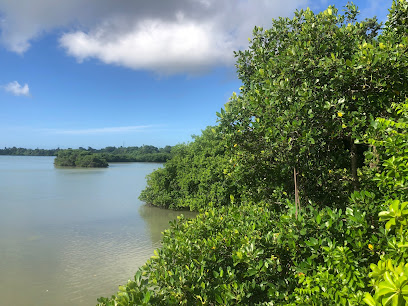
Paepae o Tele'a
Explore Paepae o Tele'a, a historical landmark in Mu'a, Tonga, steeped in culture and surrounded by breathtaking landscapes.
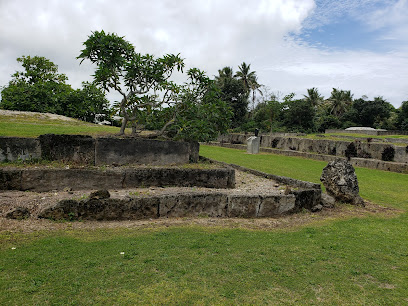
Maka Fa'akinanga
Discover the enchanting Maka Fa'akinanga, a historical landmark in Niutoua, where Tonga's rich cultural heritage comes to life amidst stunning natural beauty.
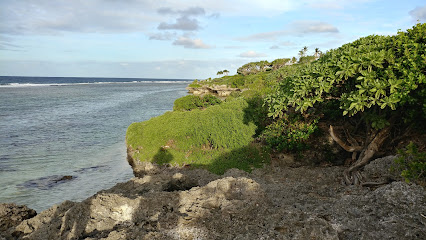
Utu'one
Experience the warmth of Tonga at Utu'one, a cozy bed and breakfast in Nuku'alofa, perfect for travelers seeking local charm and comfort.
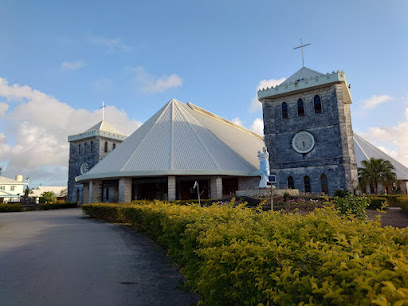
'Anahulu Beach
Discover the serene beauty of Anahulu Beach in Tonga, a perfect retreat for relaxation and adventure amidst stunning landscapes.
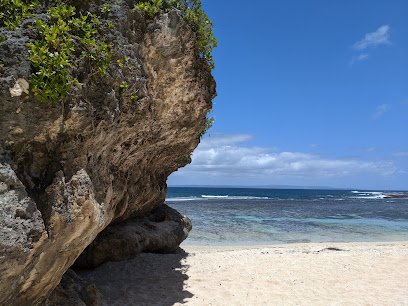
Essential places to dine
Little Italy Hotel
Discover the charm of Little Italy Hotel in Tonga - where Italian flavors meet Tongan hospitality for an unforgettable stay.

Friends Cafe
Discover authentic Tongan flavors at Friends Cafe in Nuku'alofa – where delicious food meets warm hospitality.
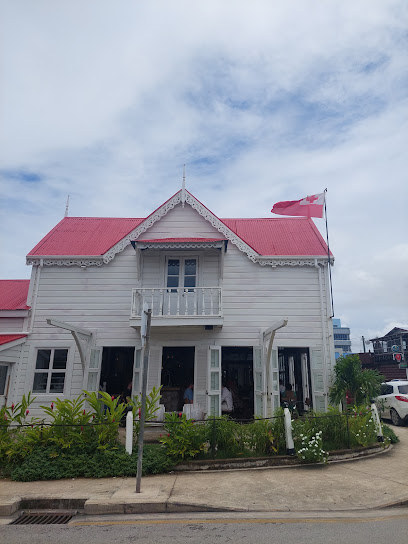
Cafe Escape
Experience the best of Tongan flavors at Café Escape - where every meal feels like home!
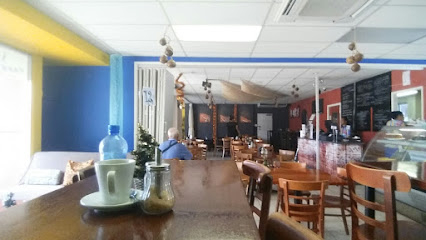
Billfish Bar and Restaurant
Discover authentic Tongan cuisine at Billfish Bar and Restaurant in Nuku'alofa—where flavor meets breathtaking views.
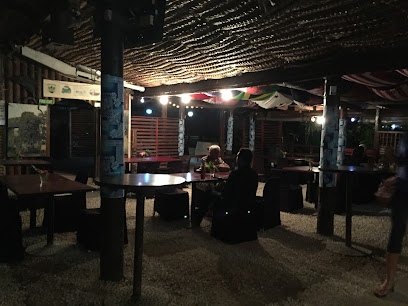
Chef Zero Restaurant
Experience Tongan culture through exquisite flavors at Chef Zero Restaurant in Nuku'alofa – where every dish tells a story.
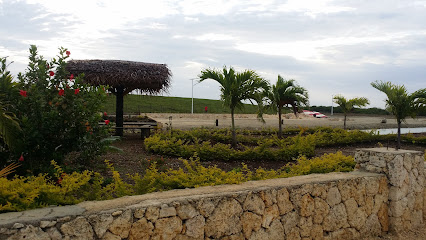
The TOP Restaurant and Lounge
Discover exquisite flavors at The TOP Restaurant and Lounge in Nuku'alofa - where Tongan tradition meets modern culinary artistry.
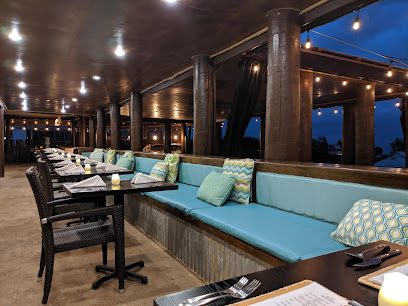
Young’s Kitchen
Discover authentic Tongan cuisine at Young's Kitchen in Nuku'alofa - where tradition meets flavor in every dish.
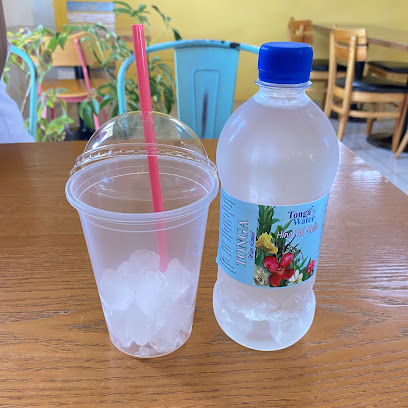
The Waterfront Cafe
Experience authentic Tongan cuisine with stunning ocean views at The Waterfront Cafe in Nuku'alofa.
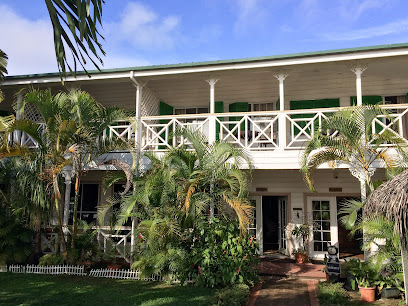
Nauti Ruby's Bar & Restaurant
Discover tropical flavors and stunning waterfront views at Nauti Ruby's Bar & Restaurant in Nuku'alofa.
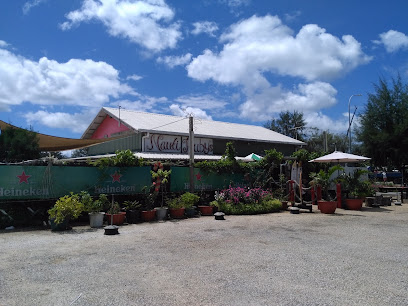
Sabrina's Chicken Vilovilo
Discover authentic Tongan barbecue flavors at Sabrina's Chicken Vilovilo in Nuku'alofa—where every bite tells a story.
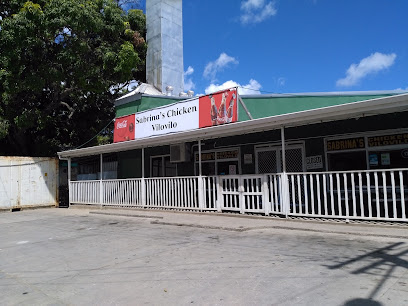
Tali'eva Inn Bar
Discover relaxation at Tali'eva Inn Bar in Nuku'alofa - where local flavors meet warm hospitality in an inviting atmosphere.
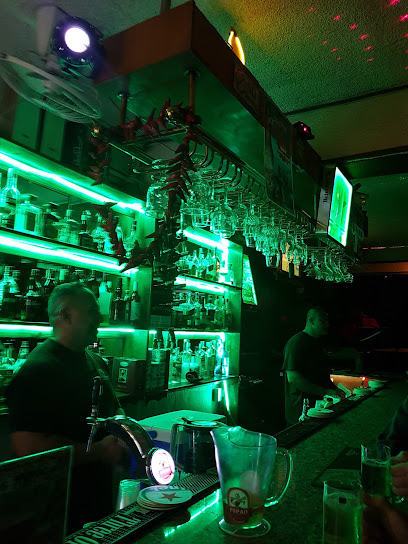
Moli Green Cafe
Experience the best of local coffee culture at Moli Green Cafe in Nuku'alofa – where every sip tells a story.
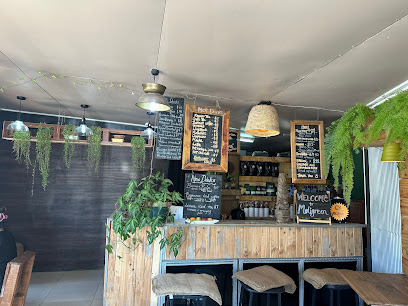
Pot Luck Restaurant
Discover the flavors of Tonga at Pot Luck Restaurant in Nuku'alofa – where every dish tells a story!
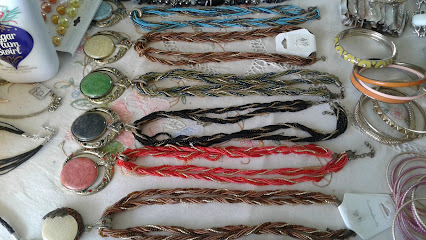
Talahiva Restaurant
Discover authentic Tongan flavors at Talahiva Restaurant in Nuku'alofa – an unforgettable dining experience amidst vibrant local culture.

tiger inn
Experience authentic Tongan cuisine at Tiger Inn in Nuku'alofa—where local flavors meet warm hospitality.
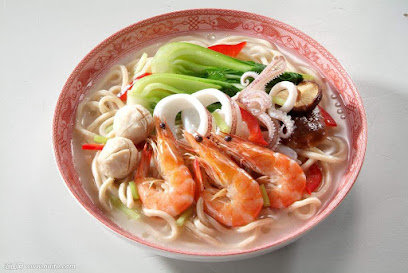
Markets, malls and hidden boutiques
Tanoa International Dateline Hotel
Experience Comfort and Culture at Tanoa International Dateline Hotel in Nuku'alofa, Tonga - Your Home Away From Home.

Anahulu Cave
Anahulu Cave: A breathtaking natural attraction in Tonga, featuring stunning rock formations and crystal-clear waters for an unforgettable adventure.
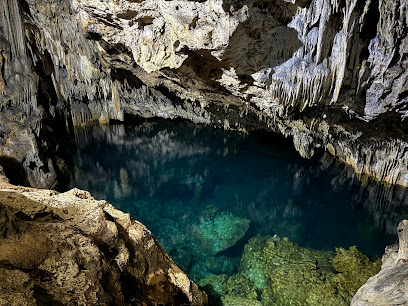
Talamahu Market
Experience the heart of Tongan culture at Talamahu Market, where fresh produce and local crafts come together in a vibrant atmosphere.
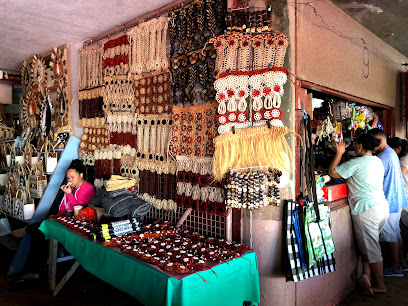
Vuna Wharf
Experience the beauty and culture of Vuna Wharf in Nuku'alofa - a charming marina that offers stunning views and local flavors.
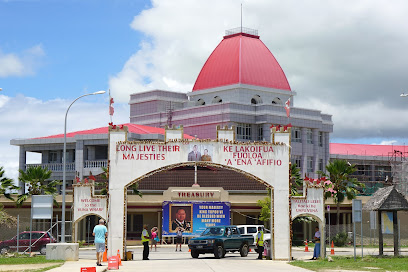
Costlow Supermarket
Discover local flavors and essentials at Costlow Supermarket, Pea's go-to destination for travelers seeking authentic Tongan products.
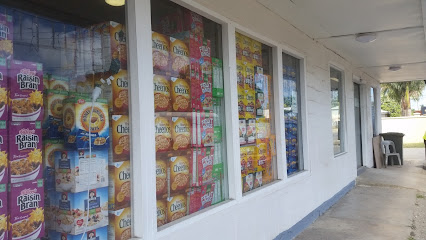
Backpackers Townhouse
Experience the warmth of Tongan hospitality at Backpackers Townhouse, a cozy bed and breakfast in Nuku'alofa, perfect for adventurous travelers.

EZ TONGA ONLINE SHOPPING
Explore the vibrant local culture of Tonga with EZ Tonga Online Shopping; discover unique crafts, foods, and everyday essentials.

Langafonua Handicraft Centre and Gallery
Immerse yourself in Tongan culture at the Langafonua Handicraft Centre and Gallery, where traditional craftsmanship and vibrant artistry come together.
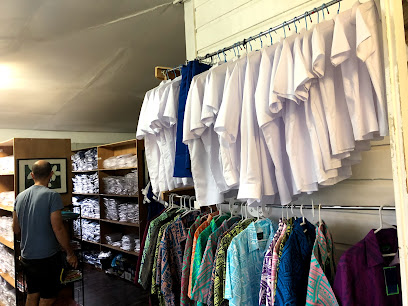
Luna'Eva Supermarket
Experience local culture at Luna'Eva Supermarket, your essential stop for fresh produce and Tongan delicacies in Nuku'alofa.
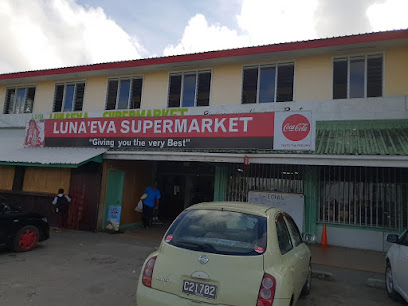
Friendly Island Bookshop
Explore Tonga's rich cultural tapestry through literature at the Friendly Island Bookshop in Nuku'alofa, a treasure trove for book lovers.
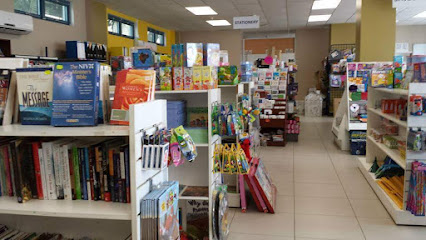
Leiola
Experience the best of local and international beers at Leiola, Nuku'alofa's favorite beer store for tourists and locals alike.
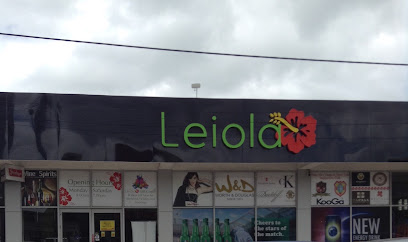
Fakafeta'i Store
Discover the heart of Tongan culture at Fakafeta'i Store, where authentic hospitality meets local treasures in Nuku'alofa.
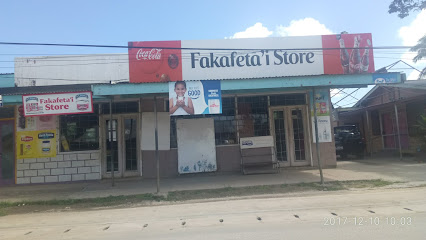
Value City (Tonga) Ltd.
Discover unique second-hand treasures at Value City Ltd. in Nuku'alofa, Tonga - a budget-friendly shopping haven for eco-conscious travelers.
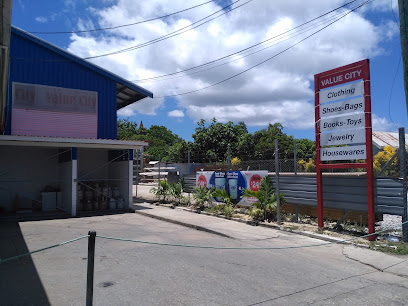
'Amanaki Lelei store
Explore Amanaki Lelei Store in Veitongo for authentic Tongan crafts and a glimpse into local culture, perfect for unique souvenirs.
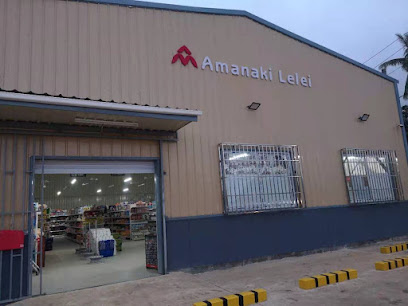
Le-Ata Tonga
Experience authentic Tongan craftsmanship at Le-Ata Tonga, a must-visit boutique in Nuku'alofa offering unique clothing and accessories.
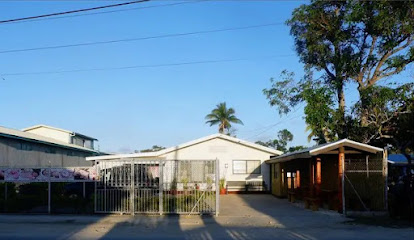
Essential bars & hidden hideouts
Tanoa International Dateline Hotel
Experience the perfect blend of comfort and culture at Tanoa International Dateline Hotel, your gateway to the beautiful islands of Tonga.

Little Italy Hotel
Discover Little Italy Hotel in Nuku'alofa, where Tongan hospitality meets Italian flavors in a cozy and inviting atmosphere.

Friends Cafe
Experience the heart of Nuku'alofa at Friends Cafe, where delicious food meets Tongan hospitality in a cozy setting.
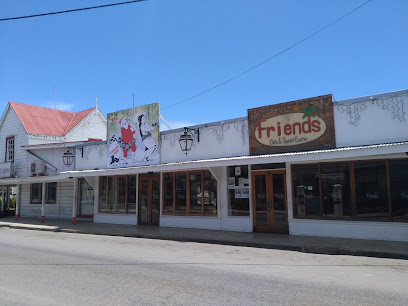
Anahulu Cave
Explore the stunning Anahulu Cave in Haveluliku, Tonga, where natural beauty and adventure await in a breathtaking underground landscape.
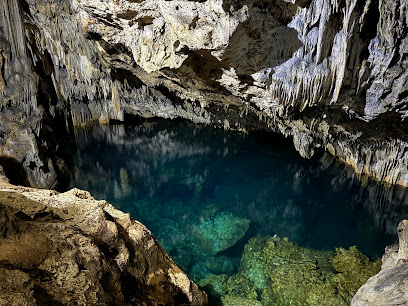
Emerald Hotel
Experience comfort and local charm at Emerald Hotel, the perfect base for exploring the beauty of Nuku'alofa, Tonga.
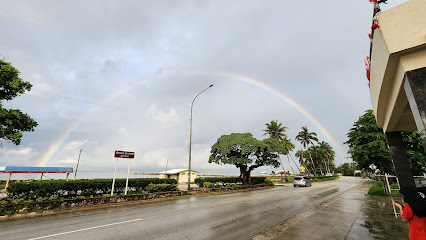
Billfish Bar and Restaurant
Experience the vibrant flavors of Tonga at Billfish Bar and Restaurant, where local cuisine meets international flair in a stunning setting.
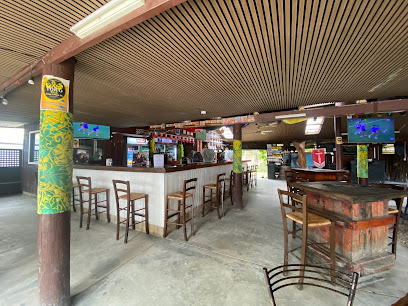
Seaview Lodge
Discover tranquility and breathtaking ocean views at Seaview Lodge, the perfect indoor lodging in Nuku'alofa, Tonga.

Waterfront Lodge
Experience the serene beauty of the South Pacific at Waterfront Lodge, your ideal retreat in Nuku'alofa, Tonga, combining comfort with local culture.
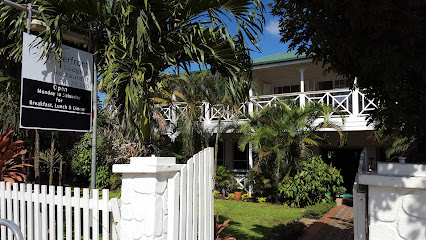
The TOP Restaurant and Lounge
Experience the best of Tongan cuisine and breathtaking views at The TOP Restaurant and Lounge in Nuku'alofa.
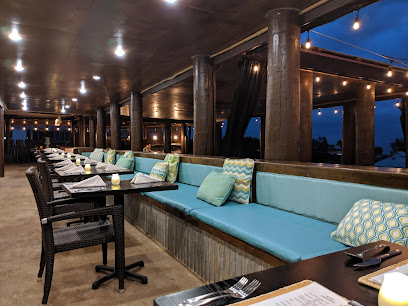
'Oholei Beach Resort
Experience the beauty and serenity of Tonga at 'Oholei Beach Resort, where relaxation meets rich Tongan culture in a breathtaking setting.
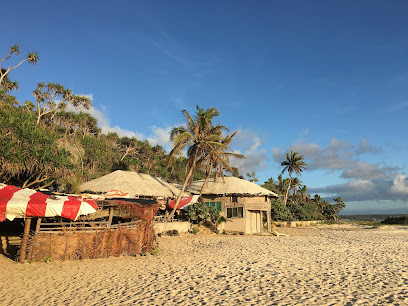
Young’s Kitchen
Discover the vibrant tastes of Tonga at Young’s Kitchen, a cozy restaurant in Nuku'alofa offering authentic local dishes and a warm atmosphere.
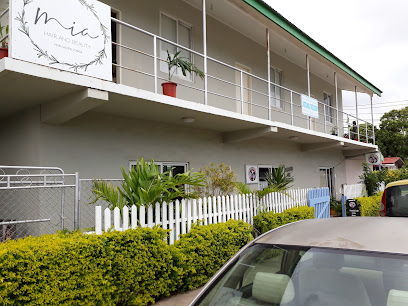
Nauti Ruby's Bar & Restaurant
Experience the vibrant atmosphere and stunning ocean views at Nauti Ruby's Bar & Restaurant in Nuku'alofa, Tonga – a must-visit for every traveler.
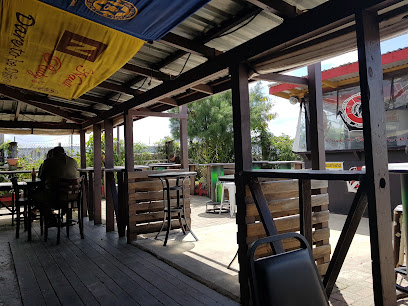
Reload Bar
Discover the lively nightlife at Reload Bar in Nuku'alofa, where tropical cocktails and friendly vibes await every visitor.
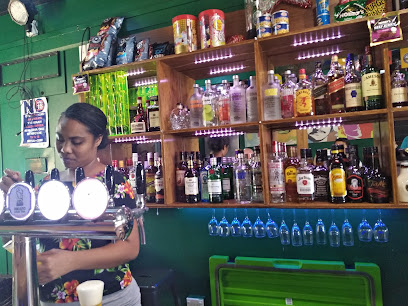
Tali'eva Inn Bar
Experience the vibrant nightlife of Tonga at Tali'eva Inn Bar, where local drinks and lively music create unforgettable memories.
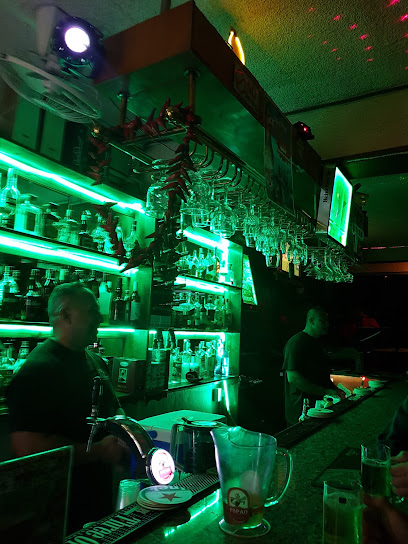
Local Phrases about Uoleva Island
-
- HelloMalo e lelei
[mah-loh eh leh-leh] - GoodbyeNofo ā
[noh-foh ah] - YesʻIo
[ee-oh] - NoʻIkai
[ee-kai] - Please/You're welcomeFakaloa
[fah-kah-loh-ah] - Thank youMālō
[mah-loh] - Excuse me/SorryFakamolemole
[fah-kah-moh-leh-moh-leh] - How are you?ʻEku haʻu?
[eh-koo hah-oo] - Fine. And you?Maʻuliʻuli. Pea ʻoe?
[mah-oo-lee-oo-lee. peh-ah oh-eh] - Do you speak English?Naʻe toe lea fakapālangi?
[nah-eh toh-eh leh-ah fah-kah-pah-lah-nee] - I don't understandʻIkai te uesia
[ee-kai teh oo-eh-see-ah]
- HelloMalo e lelei
-
- I'd like to see the menu, pleaseFakaʻilo e fakamatala, fakamolemole
[fah-kah-ee-lo eh fah-kah-mah-tah-lah, fah-kah-moh-leh-moh-leh] - I don't eat meatʻIkai te kaʻai kia
[ee-kai teh kah-ah-ee kee-ah] - Cheers!Mālo
[mah-loh] - I would like to pay, pleaseFakaʻilo e totongi, fakamolemole
[fah-kah-ee-lo eh toh-tohn-gee, fah-kah-moh-leh-moh-leh]
- I'd like to see the menu, pleaseFakaʻilo e fakamatala, fakamolemole
-
- Help!Fesoasoani!
[feh-soh-ah-soh-ah-nee] - Go away!Fano atu!
[fah-noh ah-too] - Call the Police!Faitio koloa!
[fah-ee-tee-oh koh-loh-ah] - Call a doctor!Faitio e fofoga!
[fah-ee-tee-oh eh foh-foh-ngah] - I'm lostʻIkai te kei aʻu
[ee-kai teh keh-ee ah-oo] - I'm illʻIkai te fakamalie
[ee-kai teh fah-kah-mah-lee-eh]
- Help!Fesoasoani!
-
- I'd like to buy...Fakaʻilo e fakatau...
[fah-kah-ee-lo eh fah-kah-tow] - I'm just lookingKo e tanu fakaʻilo
[koh eh tah-noo fah-kah-ee-lo] - How much is it?Ko e fakamahino?
[koh eh fah-kah-mah-hee-noh] - That's too expensiveʻE toki mahino a e meʻa
[eh toh-kee mah-hee-noh ah eh meh-ah] - Can you lower the price?ʻE toe fakamahino ha e meʻa?
[eh toh-eh fah-kah-mah-hee-noh hah eh meh-ah]
- I'd like to buy...Fakaʻilo e fakatau...
-
- What time is it?Ko e hola?
[koh eh hoh-lah] - It's one o'clockKo e taha
[koh eh tah-hah] - Half past (10)Loto helu (10)
[loh-toh heh-loo (10)] - MorningTahafo
[tah-hah-foh] - AfternoonOtumotu
[oh-too-moh-too] - EveningAhiahi
[ah-hee-ah-hee] - YesterdayʻUa
[oo-ah] - TodayʻAho ni
[ah-hoh nee] - TomorrowʻApongipongi
[ah-poh-nghee-poh-nghee] - 1Taha
[tah-hah] - 2Ua
[oo-ah] - 3Tolu
[toh-loo] - 4Fa
[fah] - 5Nima
[nee-mah] - 6Ono
[oh-noh] - 7Fitu
[fee-too] - 8Valu
[vah-loo] - 9Hiva
[hee-vah] - 10Tefulu
[teh-foo-loo]
- What time is it?Ko e hola?
-
- Where's a/the...?Ko e ... kae?
[koh eh ... kah-eh] - What's the address?Ko e laisene?
[koh eh lah-ee-seh-neh] - Can you show me (on the map)?ʻE toe fakamata aʻu?
[eh toh-eh fah-kah-mah-tah ah-oo] - When's the next (bus)?ʻE aha e taimi hoko mai?
[eh ah-hah eh tah-ee-mee hoh-koh mah-ee] - A ticket (to ....)Teke
[teh-keh]
- Where's a/the...?Ko e ... kae?
History of Uoleva Island
-
Uoleva Island, part of the Ha'apai group, has a rich history that dates back to the early Polynesian settlers. These ancient navigators, known for their extraordinary seafaring skills, arrived on the island over a thousand years ago. They established small villages, cultivated crops such as taro and yams, and fished the abundant surrounding waters. The remnants of these early settlements, including ancient stone structures and earth ovens, provide a glimpse into their daily lives and sophisticated societal structure.
-
During the 10th to 13th centuries, Uoleva Island became an integral part of the Tongan Maritime Empire, also known as the Tu'i Tonga Empire. This period marked the height of Tongan influence in the Pacific, with the empire extending its reach to various islands across the region. Uoleva served as a strategic location for trade and communication within the empire. The island's chiefs and warriors played pivotal roles in maintaining the empire's dominance, and traditional practices from this era still influence Tongan culture today.
-
Uoleva Island first came into contact with European explorers in the late 18th and early 19th centuries. Notable explorers, such as Captain James Cook, visited the Ha'apai group and documented their encounters with the island's inhabitants. By the early 19th century, Christian missionaries arrived, bringing new religious and cultural influences. The London Missionary Society established missions in the region, leading to significant changes in local customs, education, and governance. The island's transition from traditional belief systems to Christianity marked a profound shift in its cultural landscape.
-
In the mid-19th century, Tonga experienced a series of civil wars known as the Tongan Civil Wars, which were driven by rivalries between different chiefly factions and influenced by European colonial interests. Uoleva Island, like many other islands in the Ha'apai group, was affected by these conflicts. The island's strategic location and resources made it a contested territory. The civil wars ultimately led to the unification of Tonga under King George Tupou I, who established a constitutional monarchy and brought an end to internal strife.
-
In the 20th and 21st centuries, Uoleva Island has transitioned from its historical roots to become a sought-after destination for eco-tourism and cultural exploration. The island's pristine beaches, vibrant coral reefs, and lush landscapes attract travelers from around the world. Efforts to preserve its natural beauty and cultural heritage have led to sustainable tourism initiatives. Local communities continue to celebrate their traditions through festivals, dance, and crafts, offering visitors an authentic glimpse into Tongan culture while promoting environmental conservation.
Uoleva Island Essentials
-
Uoleva Island is part of the Ha'apai Group in Tonga. The nearest international airport is Fua'amotu International Airport on Tongatapu. From Tongatapu, take a domestic flight to Lifuka Island's Salote Pilolevu Airport in Ha'apai. Once in Lifuka, you can catch a boat to Uoleva Island. Boats are available from Pangai, the main town on Lifuka, and the journey takes about 30 minutes.
-
Uoleva Island is small and most places can be reached by walking. There are no cars on the island, which adds to its serene atmosphere. For longer trips or more remote areas, you can arrange boat transportation with local operators. Bicycles may also be available for rent at some accommodations.
-
The official currency in Tonga is the Tongan Pa'anga (TOP). It is advisable to carry cash, as there are no ATMs on Uoleva Island. Credit cards are accepted at some accommodations, but smaller establishments may require cash payments. It is recommended to withdraw sufficient cash in Tongatapu or Lifuka before arriving on Uoleva Island.
-
Uoleva Island is generally very safe for tourists. The local community is friendly and welcoming. There are no specific high-crime areas targeting tourists, but it is always wise to take common precautions. Keep an eye on your belongings and avoid walking alone on the beaches at night.
-
In case of emergency, contact your accommodation staff who can assist you in reaching local authorities or medical facilities. The nearest hospital is in Pangai on Lifuka Island. It is advisable to have travel insurance that covers medical emergencies. For minor health issues, carry a basic first aid kit, as medical facilities on Uoleva are limited.
-
Fashion: Do dress modestly, especially when visiting villages. Avoid wearing revealing clothing. Religion: Do respect local customs and traditions. Participate quietly in any local ceremonies if invited. Public Transport: Do arrange boat transportation in advance with local operators. There is no public transport on the island. Greetings: Do greet locals with a friendly 'Malo e lelei' (hello). Eating & Drinking: Do try local Tongan dishes and accept food offerings graciously. Don't waste food, as it is considered disrespectful.
-
To experience Uoleva Island like a local, engage with the community and participate in traditional activities such as fishing or weaving. Visit the local markets on Lifuka Island before heading to Uoleva, as this is where you can find fresh produce and goods. Enjoy the natural beauty and take part in eco-friendly activities like snorkeling and beach clean-ups.
Trending Landmarks in Uoleva Island
Nearby Cities to Uoleva Island
-
Things To Do in Ha'apai
-
Things To Do in Nuku'alofa
-
Things To Do in Foa
-
Things To Do in Pangai
-
Things To Do in Vava'u
-
Things To Do in Ha'ano
-
Things To Do in Kolovai
-
Things To Do in Eua
-
Things To Do in Levuka
-
Things To Do in Nausori
-
Things To Do in Suva
-
Things To Do in Rakiraki
-
Things To Do in Savusavu
-
Things To Do in Sigatoka
-
Things To Do in Labasa




